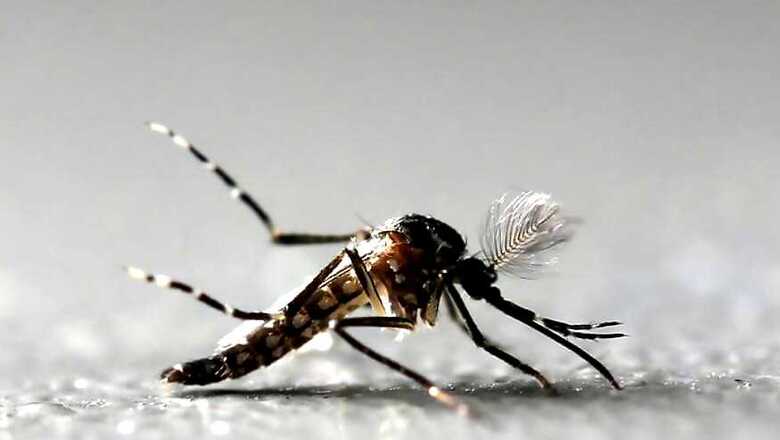
views
Another human case of mosquito-borne Eastern Equine Encephalitis or EEE has been confirmed in a Cass County resident in Michigan, according to health officials. This brings the total count of confirmed cases of Eastern Equine Encephalitis to 10 in Michigan this year. There have been four deaths from the virus this year as well.
According to the Centers for Disease Control and Prevention (CDC), EEE virus is a rare cause of brain infections (encephalitis). While only a few cases are reported in the United States each year, most of the cases of EEE occur in eastern or Gulf Coast state who get infected by EEE die. Survivors on the other hand suffer from neurologic problems throughout their lives.
The 10th case comes on the heels of the completion of aerial spraying to combat the virus.
According to the Michigan.gov website, treatment spraying over 14 Michigan counties was completed Tuesday, October 8. The spray itself covered 557,000 acres and the most recent confirmed case was discovered in Cass County, which, incidentally, was one of the areas treated with aerial spraying to combat EEE.
Five additional EEE cases have also been confirmed in horses in Jackson, Kent and Tuscola counties.
According to health officials, people should follow certain guidelines to protect themselves against EEE.
These include avoiding being outside from dusk to dawn when mosquitoes that carry the EEE virus are most active.
Furthermore, they advise applying insect repellents that contain DEET or other US Environmental Protection Agency - registered product to exposed skin or clothing.
They have also advised the sporting of long-sleeved shirts and full pants when outdoors and the application of insect repellents to help prevent mosquito bites, and the use of door and window screens to keep mosquitoes outside homes.
They have also asked people to empty water from probable mosquito breeding sites from in and around the house and use nets when sleeping.
According to CDC, no human vaccine against EEEV infection or specific antiviral treatment for clinical EEEV infections is available. Patients, who are suspected as having an EEE infection, should be evaluated by a healthcare provider. Appropriate serologic and other diagnostic tests ordered have to be ordered for them and supportive treatment provided.




















Comments
0 comment